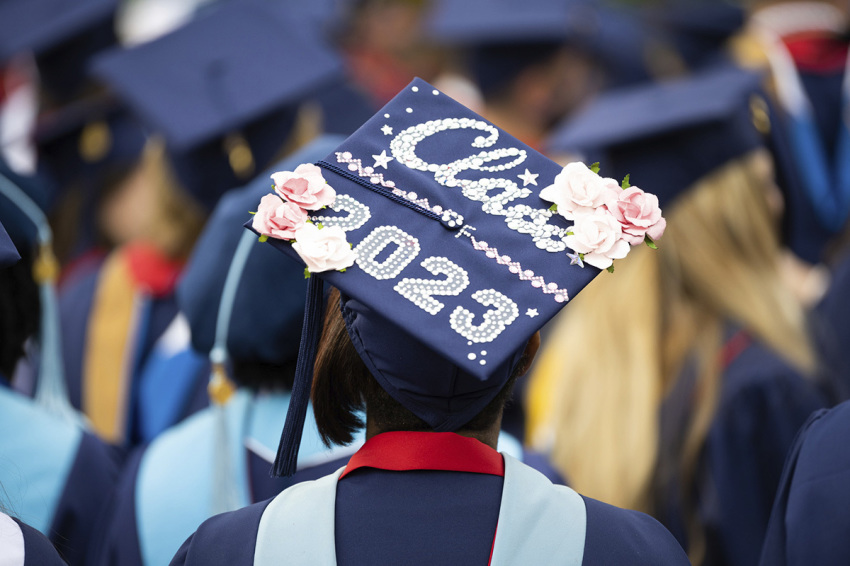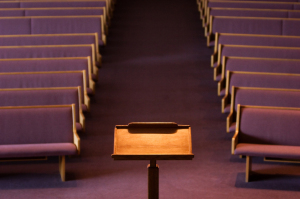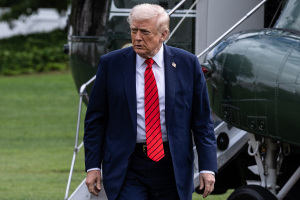Religious accommodation policies on college campuses lacking: report

Many colleges throughout the United States, regardless if they’re religiously affiliated or secular, do not have religious accommodations, and the policies at most of the institutions that do are lacking, according to a recent report.
People from certain faith backgrounds may have specific dietary needs, require prayer spaces or need time off for religious holidays. While some institutions have religious accommodation policies in place, they typically do not meet the needs of non-Christian students.
According to a dissertation conducted by a North Carolina State University doctoral student Gordon Maples, only 55 of 122 of the campuses assessed in the study had visible religious accommodation policies. Public institutions were more likely to have such policies (81%) compared to private, nonsectarian universities (58.1%).
As for Protestant institutions, 24.1% had religious accommodation policies compared to 21.4% of Catholic colleges and 6.6% of Evangelical institutions.
“The key takeaways from these findings include a pressing need to renovate existing religious accommodation policies at universities and for more colleges to develop religious accommodation policies, as many currently lack them,” the report reads.
Regarding the specific policies, the dissertation found that only 25% of the policies analyzed addressed the issue of religious accommodations outside of the classroom, such as dietary or prayer needs. The study cited a 2007 speech by Hadia Mubarak, the first female president of the National Muslim Students Association, that emphasized the importance of prayer spaces for Muslim college students.
The report noted that meeting other “practice needs” outside of holidays, which typically accommodate Christian students for Christmas and Easter, requires campuses to consider religious practices outside of “mainstream Christian norms.”
According to a Monday report by Inside Higher Ed, Maples conducted the study after he observed campuses failing to meet the religious needs of their students. The doctoral student cited an incident from when he worked at Vanderbilt University’s Office of Religious Life while studying to obtain his master’s degree.
In 2018, The Vanderbilt Hustler, a campus newspaper, published an op-ed from a Jewish woman detailing the struggle of convincing professors to recognize people of her faith need time off for the High Holidays. The High Holidays in Judaism are known as Rosh Hashanah and Yom Kippur.
“We want students to be their whole selves when they’re at our institutions,” Maples said. “We don’t want to have them compromise a part of themselves and have to make the choice between observing an important religious holiday or following their dietary needs according to their religion and being able to participate in their classes or having to sacrifice their grades potentially.”
As The Christian Post previously reported, a similar report released in September 2022 by Religious Liberty in the States, a project of First Liberty Institute’s Center for Religion, Culture and Democracy, ranked every state based on its religious liberty safeguards.
The rankings analyzed whether states allowed for absentee voting on religious holidays and exemptions from childhood immunization requirements. In addition, the report examined whether healthcare providers could refuse to provide services that conflicted with their religious beliefs, such as abortion or sterilization.
Mississippi received the highest score, as it contained 82% of the safeguards included in the report. The state had nine of the 11 safeguards classified as essential for religious liberty, lacking absentee voting and religious exemptions for vaccinations. Only nine states had a score of 50% or higher.
On the other hand, New York had the lowest religious liberty score, containing 16% of safeguards. The state had only two of the 11 safeguards, which consisted of protections for religious healthcare workers who do not want to perform abortions and religious officials who do not want to perform same-sex marriages.
Samantha Kamman is a reporter for The Christian Post. She can be reached at: samantha.kamman@christianpost.com. Follow her on Twitter: @Samantha_Kamman



























